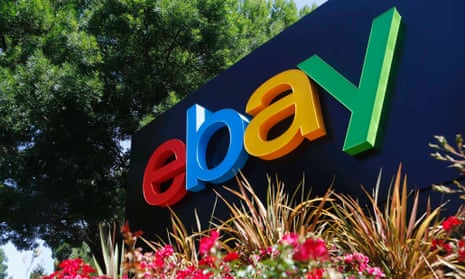Adverts in search engines have "no measurable benefits" to the advertiser, researchers at eBay claim in a paper published in conjunction with Berkeley and Chicago universities.
The auction site gave its own researcher Thomas Blakey, as well as Chicago's Chris Nosko and Berkeley's Steven Tadelis, the ability to experiment with how and when the company bought search adverts.
The researchers found that most search adverts on most search terms had very little affect on sales at all – and warn that the medium may be "beyond the peak of its efficacy."
Many companies buy adverts on searches for their brand. eBay, for instance, may buy adverts on searches for the term "eBay", as well as for terms such as "eBay shoes". But confirming what customers have long suspected, those adverts do little other than encourage users to click on the advert where they would otherwise have clicked on the normal search result to the same site.
"The results show that almost all of the forgone click traffic and attributed sales were captured by natural search," the researchers found.
"That is, substitution between paid and unpaid traffic was nearly complete. Shutting off paid search ads closed one (costly) path to a company's website but diverted traffic to natural search, which is free to the advertiser."
Generic search results do better
The researchers had slightly better news for advertisers who buy space on search results for generic terms, such as "memory", "cell phone" or "used gibson les paul".
"Unlike branded search, where a firm's website is usually in the top organic search slot, organic placement for non-branded terms vary widely," meaning that a site can't guarantee it will show up on the front page for a search term unless it pays.
But the researchers wanted to test whether dropping off the front page for generic terms actually matters to sales.
Working with eBay, they stopped advertising entirely on non-branded search terms to 30% of the US for a period of 60 days, and found that it had "a very small and statistically insignificant effect on sales… on average, US consumers do not shop more on eBay when they are exposed to paid search ads."
eBay customers 'unaffected by the presence of paid search advertising'
Looking further, they found that the ads did have an affect on a subset of eBay users: those who had only just signed up for an account, or who had made fewer than three transactions.
"Consumers who have completed at least three eBay transactions in the year before our experiment are likely to be familiar with eBay's offerings and value proposition, and are unaffected by the presence of paid search advertising," they conclude.
The findings raise significant questions about the value of the search advertising market.
"Of the $31.7bn that was spent in the US in 2011 on internet advertising, estimates project that the top 10 spenders in this channel account for about $2.36bn… our study suggests that much of what is spent on internet advertising may be beyond the peak of its efficacy."
Google is the biggest seller of search adverts in the world. In 2013, the company made $37bn from its various websites, a full two thirds of its gross revenue. The company doesn't break down revenue beyond that, but it is believed that the majority of its income comes from search advertising.

Comments (…)
Sign in or create your Guardian account to join the discussion